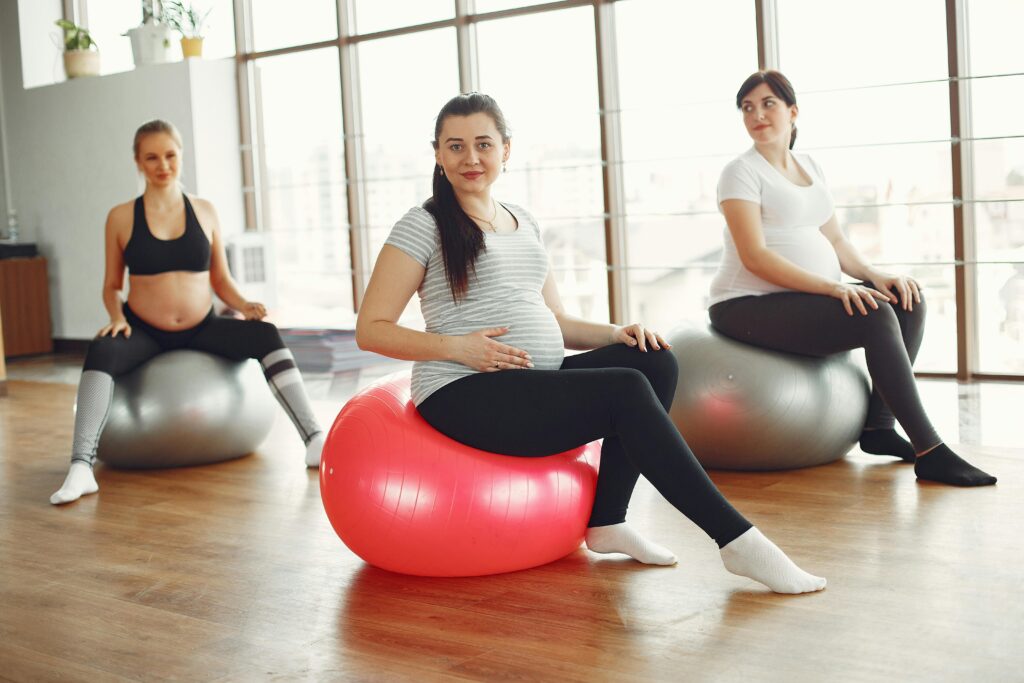Pregnancy brings both physical and emotional changes. Staying active can support your health and prepare your body for labor. Exercise helps you stay energized, improves mood, and contributes to a smoother recovery after giving birth.
The Benefits of Exercise in Pregnancy
Exercise offers several benefits for women during pregnancy. It helps reduce fatigue by boosting your energy levels and stamina. It also promotes a positive mood by releasing endorphins, which can lower stress. Regular physical activity can also support healthy weight gain by helping regulate it.
Physical activity also helps reduce common discomforts, such as back pain, bloating, and constipation. Strengthening muscles through exercise helps prepare your body for labor. A stronger body can also recover faster after delivery, supporting a quicker postpartum recovery.
Guidelines for Safe Exercise During Pregnancy
Before starting or continuing exercise, consult with your healthcare provider. Your doctor can give personalized recommendations based on your specific needs. You should stay hydrated when exercising, so drink plenty of water to avoid dehydration and complications.
Avoid overheating by choosing a cool environment and limiting intense activities. Listen to your body during exercise. If you feel discomfort, dizziness, or shortness of breath, stop and rest. You should also avoid activities with a high risk of falling or injury, such as skiing or horseback riding.
Exercises Ideal for Pregnancy
There are many exercises that are safe during pregnancy. Yoga and Pilates improve posture, flexibility, and balance while strengthening your core and pelvic muscles. These exercises also promote relaxation, which can help reduce stress.
Walking is an easy, low-impact exercise that is accessible for women at any stage of pregnancy. Swimming is another great option. The buoyancy of water supports your body and reduces pressure on your joints and back.
Strength training with light to moderate weights can maintain muscle tone and strength. Focus on form and avoid heavy lifting. Stationary cycling is also safe as it improves cardiovascular health without the risk of falling.
Exercises to Avoid During Pregnancy
Certain exercises may not be safe during pregnancy. Activities with a high risk of falling, such as rock climbing or skiing, should be avoided. Contact sports like soccer and boxing can also pose a risk of injury.
Exercises that require you to lie flat on your back should be avoided after the first trimester. This position can reduce blood flow to your baby. Intense jumping, sudden movements, or prolonged high-intensity exercises should also be avoided.
Knowing When to Stop Exercising
You should stop exercising immediately and consult your doctor if you experience certain symptoms. Vaginal bleeding or fluid leakage are warning signs that require attention. If you feel dizziness, chest pain, or painful contractions, stop right away. Shortness of breath, severe headaches, or abdominal pain should also be addressed by a doctor. Always listen to your body and seek medical advice if you feel anything unusual.
Embrace a Healthy Pregnancy
Exercising during pregnancy benefits both your physical and mental health. It helps prepare your body for labor and speeds recovery after birth. Pregnancy is a unique experience, so tailor your fitness routine to fit your needs and comfort level.
If you need guidance, consult with a certified prenatal fitness specialist or speak with your healthcare provider. This time is for you to care for your body and nurture your growing baby. Stay active, stay safe, and enjoy the rewards of a healthy, happy pregnancy.

